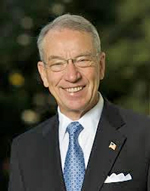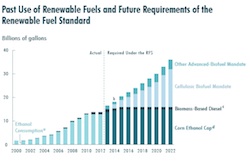 With the U.S. 4th of July holiday celebration just a few days away, IBISWorld has announced the top five industries that have helped to “re-power” the U.S. economy since the recession. The industries are characterized by strong employment growth and increasing revenue, with both trends expected to continue through 2019.
With the U.S. 4th of July holiday celebration just a few days away, IBISWorld has announced the top five industries that have helped to “re-power” the U.S. economy since the recession. The industries are characterized by strong employment growth and increasing revenue, with both trends expected to continue through 2019.
The top five industries include:
- Car and Automobile Manufacturing
- Solar Power
- Apartment and Condominium construction
- Craft Beer
- 3D Printing and Rapid Prototype Services
In more detail, IBISWorld has estimated solar growth from 2010-2014 at 70.0 percent per year on average with estimated average revenue growth from 2015-2019 at 7.6 percent per year. IBIS reports that while solar energy has been around for some time, the industry has struggled to gain traction until recently. Industry growth has been due in part to favorable Renewable Portfolio Standard (RPS) legislation, Implemented in more than 30 states. RPS legislation requires local utilities to generate a percentage of their total energy portfolio from renewable sources, thereby increasing demand for industry services. State mandates, coupled with consumers’ growing propensity to patronize environmentally friendly industries, have led to explosive revenue growth for operators over the past five years.
IBIS forecasts that over the next five years to 2019, the solar power industry is expected to continue growing. Continued government assistance via tax incentives and other regulations will help the industry remain competitive with other energy sources. Moreover, increased electricity consumption is expected to spur industry operators to meet growing demand by providing cleaner energy. Finally, the price of solar-generated energy is expected to continue falling to be either at or below parity with the traditional retail rate of grid power. As a result of these trends, IBISWorld expects revenue for the Solar Power industry to increase at an annualized rate of 7.6% over the five years to 2019.












 oleman. “That’s the entire point of the RFS and the CBO simply states that ‘it did not account for that effect in this analysis.’ To put that omission in perspective, an oil economist recently concluded that the RFS saved motorists at least hundreds of billions of dollars in 2013 by adding the equivalent of an additional OPEC country to U.S. gasoline supplies during times of extreme tightness between supply and demand.”
oleman. “That’s the entire point of the RFS and the CBO simply states that ‘it did not account for that effect in this analysis.’ To put that omission in perspective, an oil economist recently concluded that the RFS saved motorists at least hundreds of billions of dollars in 2013 by adding the equivalent of an additional OPEC country to U.S. gasoline supplies during times of extreme tightness between supply and demand.”